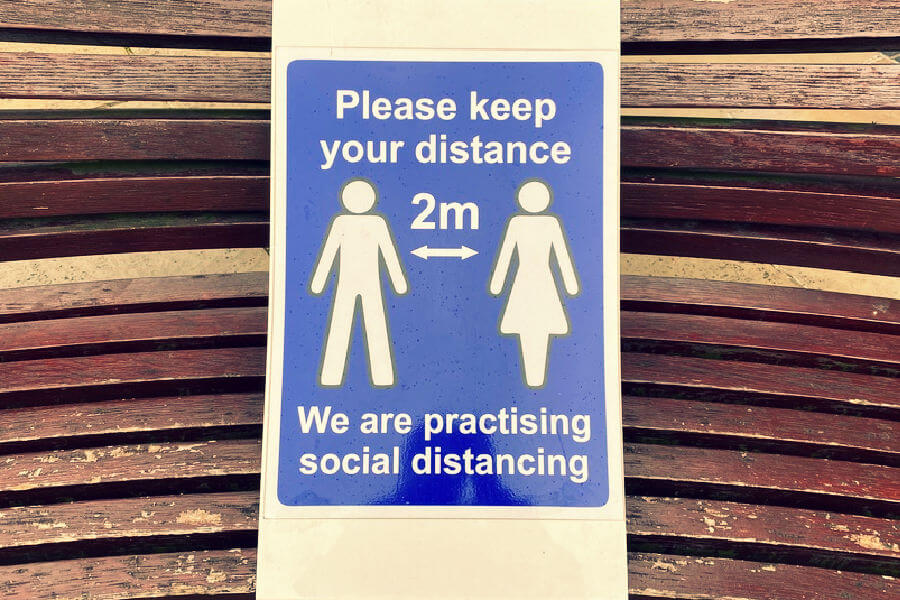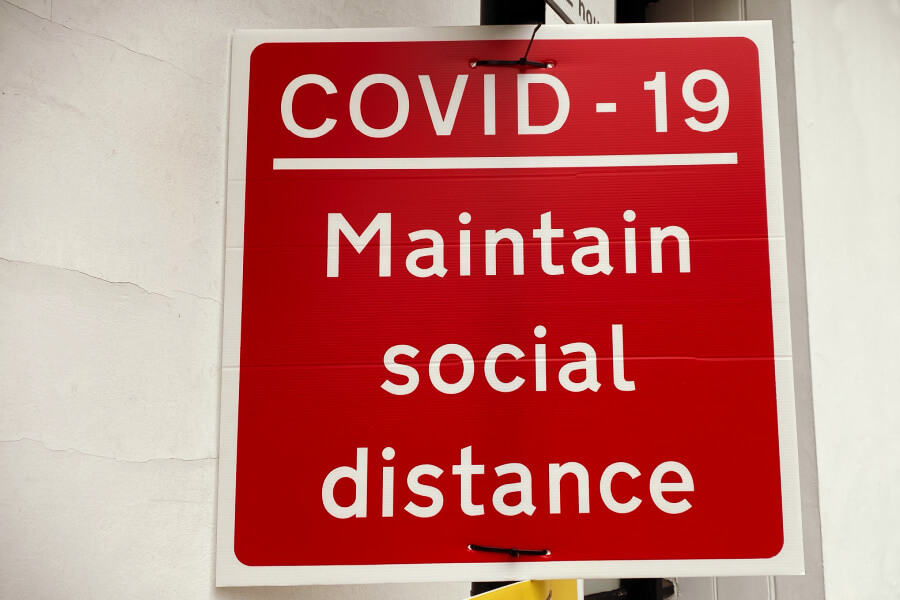The Language Of A Pandemic
Five months since lockdown was announced in the United Kingdom I’m thinking about some of the changes arising from the Covid-19 pandemic. The way I greet and interact with other people has had to change as well as the language I find myself using on an almost daily basis. Many new words have emerged in the last few months. In January I’d never been asked to socially distance and I hadn’t ever had to lockdown either. Language is agile and adapts quickly. It’s been fascinating to see the speed at which language related to the Covid-19 pandemic has developed and modified. So, what is the language of a pandemic?

Social Distancing or Physical Distancing?
Who was it that first decided to define the need to keep a reasonable distance from people that we don’t live with as social distancing? I’m not sure whether this term will stand the test of time as its gravitas seems to be ebbing away. Freelance translator Helga Humlova commented on the Atlas Translations Facebook Page to say that she had heard physical distancing used instead, as it is possible to be sociable whilst maintaining 2 metres distance from friends and family.
Time will tell as to whether the language of the pandemic will continue to evolve and for now social distancing seems to have been widely adopted.
Flattening The Curve
Flattening the curve is another phrase that you could add to the Covid-19 collection. The phrase refers to the need to suppress the spread of the virus in order to prevent the rapid increase of cases in the population, which would overwhelm health services. The suppression of the number of cases presents on a graph as a gradual curve as opposed to a spike – hence the flattening of the curve.
The Invention of the Quarantini
Some of the words of the pandemic are more genial which brings me to the Quarantini. I’m not sure what time of the day is appropriate for a quarantini but in the early days of lockdown visits to bars and pubs were no longer possible because we were asked to stay at home and the hospitality sector was closed. Evenings in the pub were replaced by Zoom calls where friends would come together in a gallery of rectangles to enjoy a drink or two online, or a quarantini. I think that the definition doesn’t refer to a particular drink but a description of any drink enjoyed with others online or on Facetime, whilst in lockdown, self-isolation or quarantine.

Covidiot
The portmanteau covidiot appears to describe someone who flouts government guidance on social distancing, whether that be organising a large gathering indoors, or wearing a mask around the chin instead of covering the mouth and nose. Earlier in the pandemic it also included someone who rushed to the supermarket to buy stocks of toilet roll as hoarding put pressure on supermarket supply chains.
Over the course of the pandemic the word covidiot has also developed to also include conspiracy theorists and individuals who deny the existence of Covid-19. It’s interesting to observe the development of this new word and to see it expand its meaning as time goes on.
Relaxing The Regulations
As the restrictions on the public begin to relax, allowing for more time outside of your home, the opening of shops and hospitality, the ability to meet with people from another household, government ministers refer to the change in the guidelines as easements. The dictionary definition of an easement is a right benefiting a piece of land that is enjoyed over land owned by someone else, or the act of easing or something that brings ease.
It’s interesting that the government chose to describe the changes to the ‘stay at home’ guidance by using a word that is meant to bring ease. Instinctively I would have thought changes would be described as a relaxation of the restrictions on our freedom to move around and socialise but using the word ‘relaxation’ may give the wrong impression and might have encouraged the general public to go back to living their lives as they did before lockdown. The deliberate description of the changes to guidance as easements communicated the change without making it sound as though restrictions were over.
The Language Of A Pandemic and Translation Services
Atlas Translations take care of every aspect of your translation. From advice and discussion to a clear and itemised quotation, through to delivery in the format you need. Dedicated, experienced project managers guide you through the process. Telephone calls answered. Emails replied to. Humans. People. Experts all the way.
As a leading language services provider, Atlas Translations has experience working in many sectors, translating and localizing digital content from Apps to websites.
Call us on 01727 812 725 to let us know what you need and we can let you know straightaway if we can help. Alternatively, send us an email to team@atlas-translations.co.uk . We respond quickly to all enquiries. Or use the little icons here on the website for live chat (it really is one of us) or to request a call back within 27 seconds.
We have recently starting using TrustPilot and you can see our reviews to date here: https://www.trustpilot.com/evaluate/www.atlas-translations.co.uk















